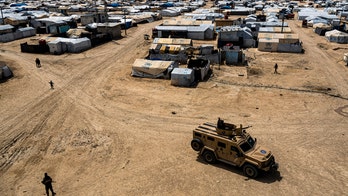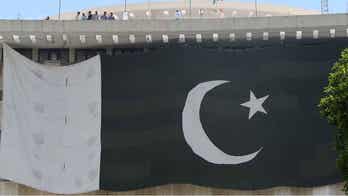Indian Prime Minister Narendra Modi secured a third term for his alliance, despite winning fewer seats than expected. The opposition Congress party made gains, claiming a moral victory.

Prime Minister Narendra Modi emerged victorious in India's general election, securing a third term for his National Democratic Alliance (NDA) coalition. The victory was met with mixed reactions, as the BJP lost seats to a stronger than anticipated opposition.
Addressing supporters at his party's headquarters, Modi hailed the victory as a triumph for the world's largest democracy. He expressed gratitude for the "immense faith" shown by Indian voters in the NDA.

Official results from the Election Commission revealed that the NDA secured 286 seats, exceeding the 272 required for a majority but falling short of the predicted landslide. Notably, Modi's Bharatiya Janata Party (BJP) fell short of achieving a majority on its own for the first time since its 2014 election triumph.
This development necessitates Modi's reliance on support from other coalition partners. Milan Vaishnav, director of the South Asia Program at the Carnegie Endowment for International Peace, highlights the potential influence of these allies in policymaking and government formation.
Despite the reduced majority, Modi vowed to fulfill his election promise of elevating India's economy to the world's third largest, from its current fifth position. He also pledged to enhance defense production, create employment opportunities, boost exports, and support farmers.
Many of Modi's Hindu nationalist policies implemented over the past decade are expected to remain unchanged. He is only the second Indian leader to secure a third term, following Jawaharlal Nehru, the country's first prime minister.
Opposition leaders claimed a moral victory, with the main Congress party asserting that the election represented a "moral and political loss" for Modi. Congress president Mallikarjun Kharge hailed the result as a triumph of democracy.
The INDIA coalition, consisting of opposition parties, won 225 seats and was leading in five others early Wednesday. Modi received congratulations from regional leaders, including from neighboring Nepal and Bhutan, while the White House commended India's "vibrant democratic process."
Modi has significantly transformed India's political landscape during his 10 years in power, bringing Hindu nationalism into the mainstream. He is widely credited with strengthening India's international standing, while critics argue that his policies have fostered intolerance and economic inequality.
Despite economic challenges, including youth unemployment, Modi's personal popularity has remained high, and he effectively turned the parliamentary election into a presidential-style campaign.
Under Modi's leadership, critics have raised concerns over the erosion of India's democracy, alleging strong-arm tactics used to suppress political opponents, silence independent media, and quell dissent. The government has denied these accusations, maintaining that democracy thrives under its watch.
The opposition campaign focused on issues such as joblessness, inflation, and inequality, resonating with voters. The BJP's polarizing rhetoric targeting Muslims may have energized its core Hindu majority base, but it also fueled the opposition's gains.










